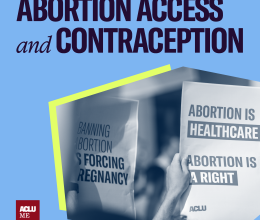The Nation columnist Katha Pollitt just released her new book, Pro: Reclaiming Abortion Rights. In the book, Pollitt attempts to tell some truths about abortion. She opens the book by addressing how common and widespread abortion has been:
We need to talk about ending a pregnancy as a common, even normal, event in the reproductive lives of women – and not just modern American women either, but women throughout history and all over the world, from ancient Egypt to medieval Catholic Europe, from today’s sprawling cities to rural villages barely touched by modern ideas about women’s roles and rights.
She urges readers to moves away from talking about abortion as if it’s a tragedy reserved only for women who are surviving trauma (rape, incest, or life threatening illness). According to Pollitt, we need to place abortion in its proper contexts – the “full human setting,” which includes “sex and sexuality, love, violence, privilege, class, race, school and work, men, the scarcity of excellent, respectful reproductive health care, and of realistic, accurate information about sex and reproduction.” Pollitt argues that changing the way we talk about abortion will help us reclaim not only the lives and the rights of women and mothers, but the lives of men and families as well.
Pollitt’s book is already getting positive attention. In a New York Times book review, Clara Jeffery agrees with Pollitt: our abortion rhetoric has made abortion advocates seem apologetic, defensive, and compromising. Because we’ve internalized shaming and negative messages about abortions, we “imagine the women seeking one as some combination of young, scared, alone, poor, and victimized.” While there are, of course, women who fit that that profile, the images and ideas we project about women who seek abortions don’t always fit with reality.
In a longer piece in Elle magazine, Laurie Abraham writes that she took Pollitt’s book personally, and “read it as a call to action, an appeal to stop letting abortion opponents fill all the available airspace.” Abraham, like Pollitt, believes that being apologetic about abortion has only resulted in distorting our ideas about how common and widespread abortion is. Abraham’s article moves beyond a simple book review as she goes on to open up about the three abortions she’s had in her life. Abraham finishes the stories of her abortions with a rather poignant point – one that fits the title of her piece: “I had one unplanned pregnancy in each decade of my reproductive life, which isn’t something to be proud of, but I’m not sure it’s anything to be ashamed of, either.” If people who advocate for abortion rights begin to change our rhetoric, we'll begin to make room for all abortion stories.









